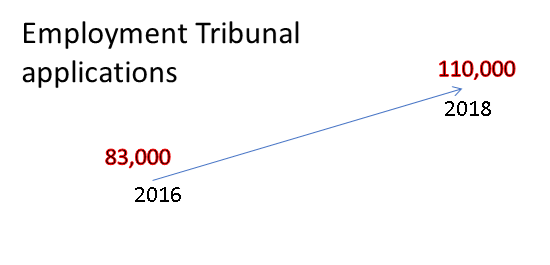Nathan’s situation
Let’s take Nathan’s situation as an example for restrictive covenants.
Nathan runs a well-known patisserie in the town of Guildford known as ‘Nat’s Pat’. He has been very concerned about one of his employees recently. This particular employee, Susan, has been turning up to work late, bullying other employees and constantly slacking. As employers I am sure you all understand how frustrating this can be!
Nathan wants to dismiss her. However, he is a little concerned as Susan is a great baker and knows all of Nathan’s secret recipes. He is worried she will steal these and use them to set up her own business and eventually steal his biggest customers!
Is there anyway that Nathan could have protected himself from this situation?
Restrictive covenants
In order to prevent a situation like the above you can, where possible, insert a restrictive covenant into your employee’s employment contract. This is very useful where, like Nathan, you want to prevent unfair competition in the event of dismissing an employee.
In the absence of a restrictive covenant there is a risk your ex-employee may:
- Compete with you
- Solicit former customers
- Poach your staff
By law restrictive covenants are void as being in restraint of trade. As an employer you cannot merely protect yourself against competition alone, you must also have an interest to protect.
When is a restrictive covenant enforceable?
For your restrictive covenant to be enforceable you need to consider whether the following is met…
Do you have a legitimate business interest to protect? This includes:
- Trade secrets e.g. Nathan’s secret cake baking recipes.
- Trade connections e.g. your relationships with your customers (goodwill).
- An interest in maintaining a stable and trained workforce.
Is your restrictive covenant only imposed on a person who has such information?
It can only be valid if imposed on a person with the above information. For example, as Susan is a co chef she will know all of Nathan’s secret recipes but an employee who’s task is merely washing up is likely not to.
Is the restraint reasonable in time and area and no wider to protect your business interests?
There is no set answer on what is reasonable or not. The size and nature of your business and the employee needs to be taken into consideration here.
For example, it may be reasonable for Susan’s contract to say that she cannot solicit any of Nathan’s customers within the town of Guildford. If this were to say across the entire world or even the whole of Surrey this will unlikely be enforceable.
However, if it were a different type of business, which involved an executive director travelling across the whole of England to create business relationships, a clause regarding the whole of England is more likely to be enforceable.
Are the terms of your restrictive covenants sufficiently clear?
To be enforceable the terms of the restrictive covenants must be sufficiently clear. Seeking advice from a solicitor may help you to ensure this is the case.
Typical types of clauses – what could you include in the employment contract to protect your business?
Non-competition
- This prohibits an employee from carrying on or being associated with business in which his/her employer is engaged within a specified number of miles of the employer’s premises.
- This can be the case for months or even years!
- The clause must be no wider that necessary to protect the employer’s business.
Non-solicitation
- This prohibits the employee from seeking business from customers of the employer within a specified period of the employee leaving employment.
- The clause is more likely to be enforceable if it just applies to customers the employee had personal contact with.
Non-poaching
- This prevents the employee from persuading other employees to go with them to a new employer.
- For example, if there was a clause like this in Susan’s contract she then couldn’t persuade another baker to leave Nat’s Pats and go with her to her new job.
Non-dealing
- This prevents the employee from dealing with clients even if the clients approach the employee themselves!
What happens if you do have a restrictive covenant in the contract and an ex employee is in breach?
If damages are not an adequate remedy your remedy could be an injunction to prevent the ex-employee from carrying on a competing business, soliciting customers or poaching staff.
Where you have suffered a financial loss you may also claim for damages.
What effect does wrongful dismissal have on a restrictive covenant?
Where the contract is terminated and no party is in breach of contact, or the employee is rightfully dismissed, a restrictive covenant can be enforced so long as it is not void for being in restraint of trade.
A problem arises where an employee has been wrongfully dismissed (e.g. you dismiss an employee without giving the correct notice period). If this is the case the restrictive covenant will not be enforceable! So, seek advice if you are worried you may not be dismissing your employee correctly.
So… how could Nathan have protected himself?
Well…believe it or not there could well be an insurance solution to this!
Contact us to find out more.
Get in contact
If you have any questions regarding your policy, restrictive covenants or anything mentioned in this article then please do not hesitate to get in contact! Just email zahid@custodianinsurance.co.uk or call 033 33 448 535.
